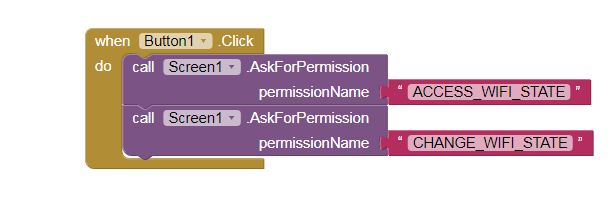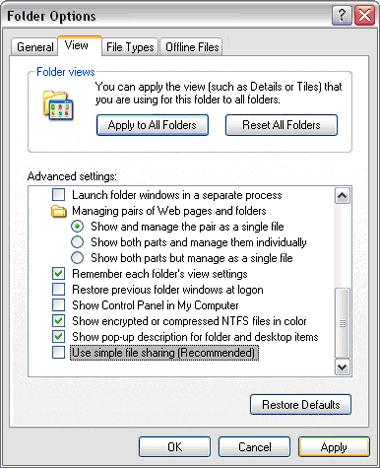
- #PERMISSION DENIED CODE BLOCKS PLUS#
- #PERMISSION DENIED CODE BLOCKS FREE#
Now that you understand the permissions groups and types this one should feel natural. Using Binary References to Set permissions
#PERMISSION DENIED CODE BLOCKS PLUS#
To add the permissions above you would invoke the command: chmod a+rw file1Īs you can see, if you want to grant those permissions you would change the minus character to a plus to add those permissions.

To make this modification you would invoke the command: chmod a-rw file1 Now we want to remove the read and write permissions from the all users group. So for example, let’s say I have a file named file1 that currently has the permissions set to _rw_rw_rw, which means that the owner, group, and all users have read and write permission. The potential Assignment Operators are + (plus) and – (minus) these are used to tell the system whether to add or remove the specific permissions. To explicitly define permissions you will need to reference the Permission Group and Permission Types. You can assign the permissions explicitly or by using a binary reference as described below. When in the command line, the permissions are edited by using the command chmod.
The last piece is the Owner and Group assignment formatted as Owner:Group. Following that grouping since the integer/number displays the number of hardlinks to the file. The third set of three characters (rwx) is for the All Users permissions. The second set of three characters (rwx) is for the Group permissions. The following set of three characters (rwx) is for the owner permissions. The first character that I marked with an underscore is the special permission flag that can vary. The permission in the command line is displayed as: _rwxrwxrwx 1 owner:group You can view the permissions by checking the file or directory permissions in your favorite GUI File Manager (which I will not cover here) or by reviewing the output of the “ls -l” command while in the terminal and while working in the directory which contains the file or folder. execute – The Execute permission affects a user’s capability to execute a file or view the contents of a directory. write – The Write permissions refer to a user’s capability to write or modify a file or directory. read – The Read permission refers to a user’s capability to read the contents of the file.  all users – The All Users permissions apply to all other users on the system, this is the permission group that you want to watch the most.Įach file or directory has three basic permission types:. group – The Group permissions apply only to the group that has been assigned to the file or directory, they will not affect the actions of other users. owner – The Owner permissions apply only to the owner of the file or directory, they will not impact the actions of other users. Permission GroupsĮach file and directory has three user based permission groups: So based upon the need for proper permissions, I will go over the ways to assign permissions and show you some examples where modification may be necessary.
all users – The All Users permissions apply to all other users on the system, this is the permission group that you want to watch the most.Įach file or directory has three basic permission types:. group – The Group permissions apply only to the group that has been assigned to the file or directory, they will not affect the actions of other users. owner – The Owner permissions apply only to the owner of the file or directory, they will not impact the actions of other users. Permission GroupsĮach file and directory has three user based permission groups: So based upon the need for proper permissions, I will go over the ways to assign permissions and show you some examples where modification may be necessary. #PERMISSION DENIED CODE BLOCKS FREE#
For more great SysAdmin tips and techniques check out our free intro to Linux course.Īlthough there are already a lot of good security features built into Linux-based systems, one very important potential vulnerability can exist when local access is granted – – that is file permission-based issues resulting from a user not assigning the correct permissions to files and directories.

This is a classic article written by Jack Wallen from the archives.







 0 kommentar(er)
0 kommentar(er)
